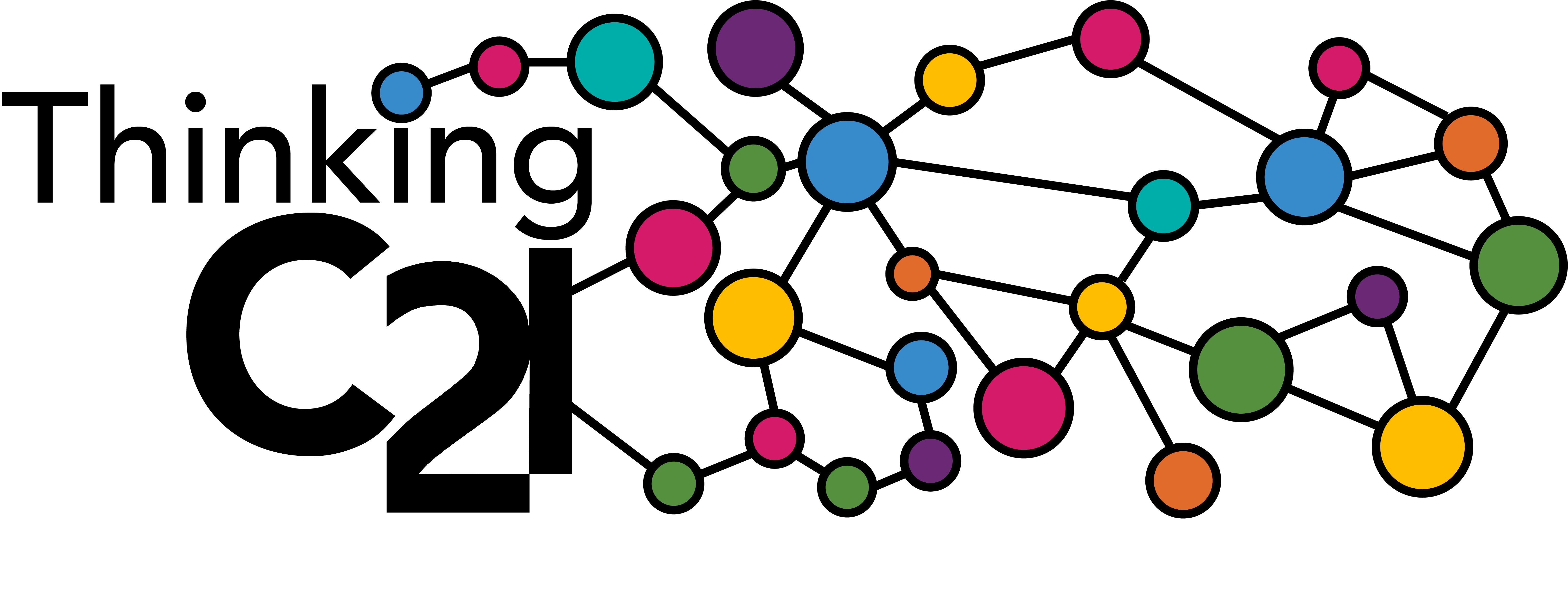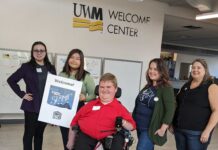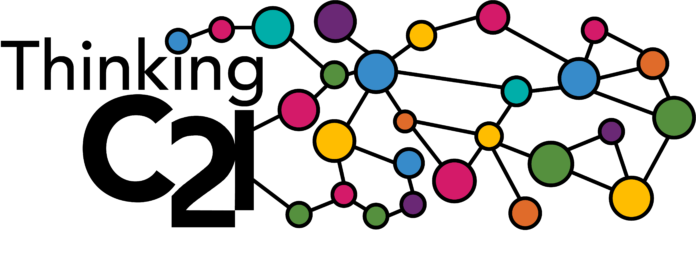By Olga Koulisis, PhD
America’s bold eighteenth-century experiment in professed human equality is on trial, once again. Equality, moderation, and pluralism, mainstays of celebrated American political rhetoric and battlegrounds of U.S. political development, again have become ideas non grata for some who encourage a twenty-first century politics of elitism, extremism, and ethnonationalism. Charismatic leadership, extremism as virtue, and diversity as destroyer of worlds, twentieth-century specters, have returned to vogue. These positions, which certainly have haunted U.S. history, conflict with the ideological ideals of this country and undermine the promises of any liberal democratic republic committed to fair and open elections, universal suffrage, separation of powers, equality before the law, and protection of individual human rights.
In democratic republics like the United States, education fortifies political and economic health. Accordingly, it is no coincidence that as the U.S. both democratized and industrialized it expanded its educational institutions.1 Education and democracy are not either or; they must coexist to reach the highest forms of their potential. Democratic processes without an educated citizenry turn into mob rule or majoritarian privilege, and educational institutions in non-democratic countries become spaces for elite socialization, knowledge control, and class reproduction. Education and democracy have a synergistic relationship; they are better together.
What can the education sector, and universities in particular, do to contribute to democracy?
A whole lot.
U.S. universities have shifted focus during the last three decades.2 The heightened emphasis on STEM has led many to believe that the best measure of a good college degree is a high-paying job. During these same years, universities have become products instead of centers of higher learning, leading many to believe that the best measure of a good college is its ability to deliver a set of consumer experiences centered on housing, dining, recreation, and athletics.3 With the ballooning costs of higher education increasingly passed on to the educational consumer, who can blame parents and students for their focus on employability and campus lifestyle? Universities have contributed to such societal expectations in a feedback loop that deprioritizes academics and invests in the college experience infrastructure.
Many universities today measure their success by employability and enrollments. Nothing wrong with these measurements per se, but they need not be mutually exclusive of broader institutional roles in U.S. society.4 Historically, states chartered universities, and in particular public universities, to provide a public service – the production of informed and skilled graduates who could function as members of a democratic society and also contribute to economic abundance.5 It appears that we have neglected the former to focus on the latter. Being a “good citizen” in a democratic republic does not end at employment. How do we restore balance to our mandate as universities to educate the next generation not only for a career, but also civil life?
I propose universities reprioritize human interaction in the learning process and commit themselves to expanding the academic experience by emphasizing the learning environment as a workshop/space for human trust, exchange, and innovation.
How do we do that?
We restore the humanities in student training, require discussion-based courses that ask students to consider complex questions centered on the human experience, and hold students accountable for their learning.
Recentering the Humanities in Curriculum
Please do not laugh this off as idealistic rhetoric from a self-serving historian. I value the sciences and our collective technical knowledge as humans, and recognize the achievements of the business sector, but the times call for a sharp correction in educational balance.
The U.S. and other democratic republics need people who have the skills to assess information validity, participate in informed dialogue, and engage in critical thinking. Where can one practice those valuable skills most frequently and effectively as it relates to social interactions and human-centered questions? In any humanities classroom. From human relationships with self, other, environment and the divine to understandings of change over time, contextualization, sourcing, perspective, humility, and ethics, the humanities challenge students of all ages to ask themselves what it means to be alive.
In a world in which advancements in artificial intelligence and digital currencies move at a pace far exceeding human evaluation, the study of humanities trains students to pause, question, think, reflect, and act from a place of deep processing. Such skills are essential to innovation and creative endeavors, and very much needed to stimulate human minds in ways that combat the cheap and quick dopamine hits of our social media culture.
Recentering the humanities need not be seen as zero-sum with STEM or business fields. Indeed the two historically and institutionally have been linked in the human study of arts and sciences with business and political leaders of bygone days as students of English and history. Despite the private sector’s own evidence against it, we have allowed a broader narrative to circulate unchallenged in which undergraduates believe that they are unemployable if they graduate with degrees in English, history, philosophy, or the arts. That is untrue.6
If reversing the perceived employability bias against humanities seems like too much, one practical suggestion is that STEM and business degree programs consider encouraging humanities minors in their own production of well-rounded graduates. STEM students, with their training in experimental design and interpretation of data, and business students, with their training in decision-making and resource allocation, would benefit from humanities-based critical thinking training that examines causality, ethics, human motivations, varied perspectives, and reflection while also adding meaning to their own lives as researchers, engineers, and managers.
Most of our STEM and business graduates today leave college with one or two general education survey-level humanities classes (if they do not already come in with credit), get their specialized training, and go on to live professional lives where corporations and businesses pay for speakers to come in and teach them how to cultivate innovation, better understand the human experience with the goal of improving teamwork, clarity, and employee engagement. It seems that both our students and their future employers would benefit from recentering humanities in the university experience.
Recentering Discussion in the Learning Process
Scholars who study classroom discussion have found that it helps students process information and develops their civic discourse.7 My experience in the classroom for almost twenty years supports these studies. During discussions of complex questions centered on the human experience, we can model communication processes that value the consideration of various viewpoints with the goal of reconciling differences instead of “winning” as is so often encouraged in our current environment.
One of the prerequisites for successful classroom discussions, and for healthy democratic governance, is trust. In democracies, people must trust their institutions and processes, their leaders and representatives, and broadly their fellow participants. One way that democracies do this is through education in terms of content and modeling.
In the discussion-based classroom, trust operates on two levels, between educators and students, and between students and their peers. Learning to trust in the classroom takes time and investment in human relationships. We must get to know another if we are to be honest about our ideas and vulnerable to share our thoughts. Trust-building relies heavily upon skilled educators who recognize the humanity of each participant, understand their own values and understand that those may differ from their students’ values, model patience with students, and create classrooms where students feel comfortable sharing their ideas.
There are two related corollaries to discussion-based learning: heterogeneity and pluralism. One is a fact and one is a value. Educators, students, and all humans would benefit from understanding the distinction between facts and values when engaging in conversations, especially difficult dialogues.
Let’s explore both heterogeneity and pluralism broadly before returning to the classroom.
Heterogeneity is a fact of modern societies from small towns to big cities. Transportation and media have assured the proliferation of peoples and ideas across borders despite reactionary attempts to foster homogeneity. While some human spaces may be more homogenous than others, not everyone is the same in any given location. In general, we live in communities of diverse people with different ideas. Biology tells us that heterogeneity fortifies the foundation of any healthy ecosystem. Monocultures repeatedly die out as they do not have variation. Along these lines business scholars tell us that innovation often comes from individuals who experience the world through behaviors that value multiplicity, interconnection, and unorthodox responses.8
Pluralism is a value, one that I hold dearly and one that I believe is essential to democratic societies, including the U.S. democratic republic. James Madison would agree though we would differ in our imagined legitimate “factions” in political life. I, as woman, was not on his eighteenth-century political radar. In general pluralism is a belief that societies should balance out the interests of various groups because in human societies, a plurality of values exists. By respecting various groups, you prevent fighting and wasteful destruction of human life and creative energy. Of course even pluralists offer various solutions on how such a society should be structured.
My point, is that heterogeneity and pluralism are important to understand and I would add important to value if one is to have discussion-based learning. Of course everyone – in my opinion, which is based on my values – is entitled to their own decision making on this.
Please note that I am not encouraging anyone to allow hateful speech in our classrooms. Ridicule, ad hominem attacks, degradation, and discrimination have no place in any educational environment, or any human interaction. Educators must model dialogue and disagreement in civil society. We do not dehumanize other humans who have ideas that differ from ours. We disagree with them but from a place of recognizing that other humans live everyday experiences that differ from ours.
High-level discussion occurs when students are exposed both to a wide spectrum of ideas in materials for discussion and also in the voices that proliferate in their classroom exchange.
Importantly, people are entitled to their own values, but not to their own facts. The Holocaust occurred; the earth is not 5,000 years old. Universities should be spaces where growing adults consider their positions on big human questions and have space to explore their values and check those values against bodies of knowledge and facts. Instructors should serve as fact checkers and classrooms as places for dialogue, exchange, and disagreement centered on differing values. Students and participants in democratic governments need to be aware of when their positions come from their values as opposed to facts.
Our young people need practice engaging others in group settings beyond working on an engineering project together, examining a business case study, or practicing an employer interview. These are all useful experiential learning and have their place in training, but humans also need practice in having hard conversations and sitting with uncomfortable positions. This requires faculty commitment to varied interpretations and instructional materials that include views that may conflict with their own. Again, facts should be upheld, as speakers and listeners are trained to realize when positions are coming from different values. This is where our university classrooms must be laboratories for diverse opinions. Humanities courses are at the heart of such learning. This is where students will learn the hard skills of democracy: communication, compromise, and negotiation.
Discussion-based classrooms require smaller sized classes, which also requires hiring faculty. It behooves various social stakeholders to invest in humanities faculty, and preserve and expand tenure lines as this encourages open conversations, which is ultimately a public good for open societies. Just as some universities require writing intensive courses, one could imagine requiring discussion-intensive courses in which student participation will be assessed on one’s ability not just to speak, but also to listen and reflect back what another has said. These are important skills for any twenty-first century professional and certainly vital to democratic political health.
Holding Academic Standards
I will not spend much time on this last one, but I simply encourage university faculty and administration to more carefully meditate on the meaning of the college degree as we work to increase enrollments and raise graduation rates. Our society’s democratization of the university degree need not mean we lower standards. Not everyone has to graduate with a 4.0. Last time I checked one still gets a degree with half of that. Educators must have clear notions of what mastery of material means in their courses. The pandemic and our mental health crisis have created a learning environment in which many of us equate compassion and kindness with giving students a good grade. I just recently filled out a survey from the Collegeboard asking me about my grading practices. The survey’s framing of questions implied that grades have risen across the nation. The survey creators seemed eager to know if I felt pressure, and from whom, to raise students’ grades. Some have adopted the notion that grades are for effort and that student mental health is served best when students get As or Bs. This thinking reinforces the notion that external measures like grades reflect our internal worth. I completely disagree in my teaching philosophy as I believe grades measure content mastery and our internal worth comes from our humanity. Students who exhibit effort or who struggle in my classroom get words of affirmation, praise, and support, but they also might end up with a C or a D. It doesn’t mean I think less of them, but it does reflect what they were able to do this semester in my course, and I trust that they still learned something from the process.
What does this have to do with preserving democracy? Holding standards while decoupling grades from human worth, reinforces the idea that there are measures of knowledge in our society and that humans have different specialties. We are not all experts in chemistry and we are not all experts in history. There are indeed bodies of knowledge out there for humans to master and contribute to expanding during their own time on this planet. By giving everyone As for effort we denigrate the structures of shared and interdependently created and trusted truths that are essential to democratic republican governance.
To reiterate, universities, and all educational arenas, have a vital role in preserving democratic republics through commitment to modeling healthy human interactions and creating spaces that promote the expression of varied perspectives and the freedom of the mind. We can reinvigorate these civic commitments by recentering the humanities, emphasizing discussion-based learning, and fostering a respect for knowledge and its creation.
Works Cited
[1] Roger Geiger, The History of American Higher Education: Learning and Culture from Founding to World War II (Princeton: Princeton University Press, 2016); John R. Thelin, A History of American Higher Education (Baltimore: John Hopkins University, 2004); for an older and shorter take that reflects its times see Richard Hofstadter and C. DeWitt Hardy, The Development and Scope of Higher Education in the United States (New York: Columbia University Press, 1952).
[2] Wesley Shumar, College for Sale (London: Farmer Press, 1997); Derek Bok, Universities in the Marketplace (Cambridge, MA: Harvard University Press, 2003).
[3] Academics and journalists refer to the “college amenities arms race” in higher education. See Jeffrey J. Selingo, College (Un)bound: The Future of Higher Education and What It Means for Students (Boston: Houghton Mifflin Harcourt, 2013), 28-33; Cara Newton, “The College Amenities Arms Race,” Forbes, July 31, 2014, https://www.forbes.com/sites/caranewlon/2014/07/31/the-college-amenities-arms-race/; Kyle Jaeger, “College Amenities are Getting Out of Hand,” attn:, August 19, 2015, https://archive.attn.com/stories/2838/college-amenities-rising-costs; Kevin McClure, “Examining the ‘Amenities Arms Race’ in Higher Education: Shifting from Rhetoric to Research,” College Student Affairs Journal 37, no. 2 (2019): 129-143.
[4] On late-twentieth and early twenty-first century universities and social responsibilities, including discussions of “public good” see Derek Bok, Beyond the Ivory Tower: Social Responsibilities of the Modern University (Cambridge, MA: Harvard University press, 1982); Adrianna Kezar, Tony Chambers, and John Burkhardt, Higher Education for the Public Good: Emerging Voices from a National Movement (San Francisco: Jossey-Bass, 2005).
[5] The history of higher is much more nuanced than this statement with various institutional histories. For a look at different models that still centered some sort of common good see Charles Dorn, For the Common Good: A New History of Higher Education in America (Ithaca, NY: Cornell University Press, 2017).
[6] Companies hire people with humanities degrees. Various business-oriented media regularly call for more humanities majors who possess critical thinking and soft skills. For a small recent sample of this call see Barthélémy Kiss, “I’m an AI startup founder and I love hiring liberal arts grads. They give us a surprising edge,” Business Insider, February 7, 2024, https://www.businessinsider.com/ai-companies-hiring-liberal-arts-humanities-grads-2024-2?op=1; Yehuda Leibler, “The Information Revolution Put Tech at the Center – but now it Needs the Humanities,” Entrepreneur, August 8, 2022, https://www.entrepreneur.com/science-technology/why-the-rise-of-ai-requires-revitalizing-the-humanities/431241; Phil Baty, “Why the arts and humanities are critical to the future of tech,” World Economic Forum, November 3, 2021, https://www.weforum.org/agenda/2021/11/arts-and-humanities-critical-future-of-tech/; Pavitra Raja and Linda Peterhans, “How Arts and Culture Can Serve as a Force for Social Change,” World Economic Forum, October 29, 2020, https://www.weforum.org/agenda/2020/10/how-arts-and-culture-can-serve-as-a-force-for-social-change/; and an oldy at this point, Tony Golsby-Smith, “Want Innovative Thinking? Hire from the Humanities,” Harvard Business Review, March 31, 2011, https://hbr.org/2011/03/want-innovative-thinking-hire. Even critics of how the humanities are taught, recognize their importance, see economist Allison Schrager, “The Economic Case for a Liberal Arts Education,” Bloomberg, November 29, 2023, https://www.bloomberg.com/opinion/articles/2023-11-29/the-economic-case-for-a-liberal-arts-education?srnd=undefined; For an example of entrepreneur who values her humanities degrees and used them to create her own company, see Jin Chow, “Myth Or Fact?: STEM Majors Are Inherently More Valuable Than Humanities Majors,” Forbes, October 26, 2023, https://www.forbes.com/sites/jinchow/2023/10/26/myth-or-fact-stem-majors-are-inherently-more-valuable-than-humanities-majors/?sh=7023554c3606. Chow draws our attention to the wide spectrum of income potential within majors depending on the what students do with the degree.
[7] On the importance of discussion to learning see James Lang and the foundational work of Stephen Brookfield. James Lang, Small Teaching: Everyday Lessons from the Science of Learning (San Francisco, 2016); Stephen D. Brookfield and Stephen Preskill, Discussion as a Way of Teaching: Tools and Techniques for Democratic Classrooms (San Francisco, 1999). On the importance of discussion to developing civic discourse see Diana E. Hess and Paula McAvoy on the “political classroom” and Abby Reisman on having students enter the “historical thinking space.” Abby Reisman, “Entering the Historical Problem Space: Whole-class Text-based Discussion in History Class,” Teachers College Record, 117 (Feb. 2015), 1-44.
[8] Dyer, Gregersen, and Christensen identify specifically five skills that innovators possess:
Associating – drawing connections between questions, problems, or ideas from unrelated fields
Questioning – posing queries that challenge common wisdom
Observing – scrutinizing the behavior of customers, suppliers, and competitors to identify new ways of doing things
Networking – meeting people with different ideas and perspectives
Experimenting – constructing interactive experiences and provoking unorthodox responses to see what insights emerge
These skills embrace heterogeneity.
See Jeff Dyer, Hal Gregersen, and Clayton M. Christensen, The Innovator’s DNA: Mastering the Five Skills of Disruptive Innovators (Boston: Harvard Business Review Press, Revised Edition 2019).






